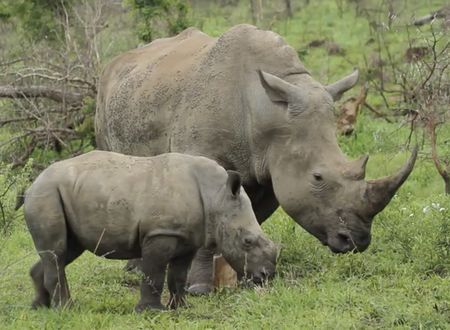“Is man the architect of his destiny through his present Karmas (पुरुषार्थ) or he is a mere puppet to past karmas (प्रारब्ध )?“.
This to me has been one of the fundamental questions of life. One can also rephrase the question as “Is there something called “Destiny” and “If there is destiny then of what use is man’s personal efforts?”. This question finds mention at various places in Sanatan (Hindu) Scriptures including Buddhist and Jain scriptures. It is said that good or bad karma contributes to the Karmic debt and plays a role in one’s life unless it bears fruit or is extinguished through Tapas.
In the Mahabharata, I came across two dialogues on this question between “Kripacharya & Ashwatthama” and that between “Bhisma and Yuddhisthir” in separate settings respectively. The key excerpt of these dialogues with English translation is as follows:-
Kripacharya – Ashwatthama dialogue
आबद्धा मानुषाः सर्वे निबद्धाः कर्मणोर्द्वयोः । दैवे पुरुषकारे च परं ताभ्यां न विद्यते ।।
All human beings are bound by two types of deeds, Prarabdha and Purusharth. There is nothing other than these two.
उत्थानं चाप्यदैवस्य ह्यनुत्थानं च दैवतम् । व्यर्थं भवति सर्वत्र पूर्वस्तत्र विनिश्चयः ।।
The effort of a man (Purusarth) without destiny is in vain and the destiny devoid of effort also goes in vain. Of these two, the first i.e. destiny is superior (i.e. without the help of the destiny or Divine, effort does not work).
सुवृष्टे च यथा देवे सम्यक् क्षेत्रे च कर्षिते । बीजं महागुणं भूयात् तथा सिद्धिर्हि मानुषी ।।
For good growth, a seed requires both good rains and proper tilling of the soil. Similarly, all the achievements of human beings depend on both Destiny and Purusharth.
चेष्टामकुर्वल्लँभते यदि किंचिद् यदृच्छया । यो वा न लभते कृत्वा दुर्दर्शौ तावुभावपि ।।
It is very difficult to find both these types of people – one who achieves something by God’s will (by destiny) without making effort or the one who does not achieve anything even after making effort.
हीनं पुरुषकारेण यदि दैवेन वा पुनः । कारणाभ्यामथैताभ्यामुत्थानमफलं भवेत् ।।
“Destiny without effort” or “effort without destiny”- either of these two reasons is capable of rendering a man’s pursuit unsuccessful.
Bhisma-Yuddhisthir Dialogue (Vashishtha- Brahma dialogue)
स्वं चेत् कर्मफलं न स्यात् सर्वमेवाफलं भवेत् । लोको दैवं समालक्ष्य उदासीनो भवेन्ननु ।।
If one does not get the result of one’s actions, then all the actions become infructuous and everyone becomes indifferent to doing actions looking at the fate only.
यथाग्निः पवनोद्धूतः सुसूक्ष्मोऽपि महान् भवेत् । तथा कर्मसमायुक्तं दैवं साधु विवर्धते ।।
Just as a small fire becomes very big with the help of air, in the same way, with the help of effort, one’s luck or destiny gets stronger.
यथा तैलक्षयाद् दीपः प्रह्रासमुपगच्छति । तथा कर्मक्षयाद् दैवं प्रह्रासमुपगच्छति ।।
Just as a lamp goes out when oil runs out, so does the destiny when the effort is exhausted.
न च फलति विकर्मा जीवलोके न दैवं व्यपनयति विमार्गं नास्ति दैवे प्रभुत्वम् । गुरुमिव कृतमग्रयं कर्म संयाति दैवं नयति पुरुषकारः संचितस्तत्र तत्र ।। ४७ ।।
A man is never seen to flourish in this living world without hard work on his part. Destiny doesn’t have that much power to take him away from the bad path and put him on the right path. Just as the disciple walks on the path shown by the Guru, in the same way, destiny walks behind the effort (Purusharth). Accumulated effort alone takes destiny wherever it wants.
Thus, an optimum combination of effort and destiny is required for one to succeed in life and both have their importance. Each of the two fails to bring results if working alone ( although destiny may have a veto of its own in rare cases). The correct approach is as prescribed by Bhagwan krishna in the Bhagavad Gita (Verse 2.47):
Because you have free will, you can control your actions, but you are never in control of the fruit or ultimate outcome of what you do. Therefore, never let attachment to the fruits be the ultimate reason for your actions. Conversely, do not simply retreat into a state of detached inaction. (Translation: Jeffery Armstrong)









Comments & Discussion
4 COMMENTS
Please login to read members' comments and participate in the discussion.